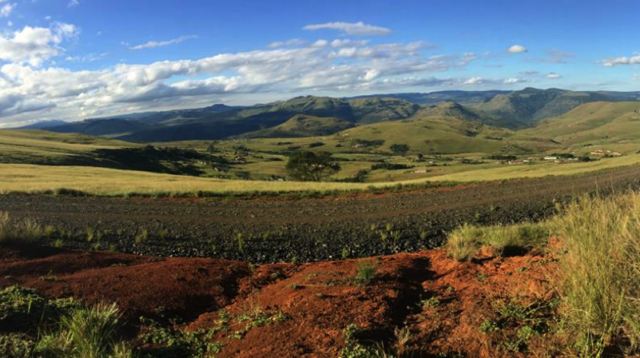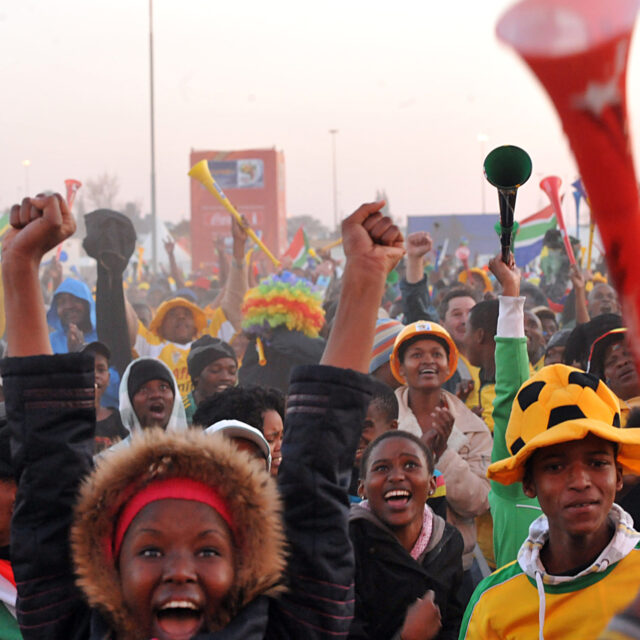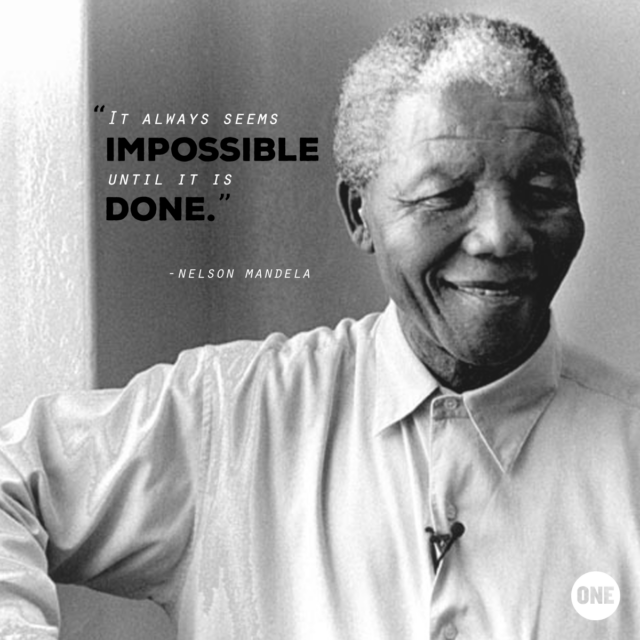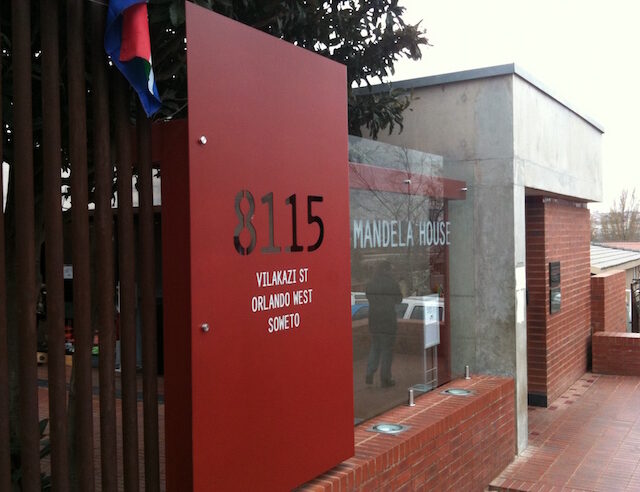This is the second in a series of posts on a study abroad in South Africa by Juliet Schear. You can read the introduction to and part 1 of the series here.
The Disability Project – Sandanezwe, KZN
Tucked away in the sprawling mountains and grassy hills of Sandanezwe lays a hidden gem: The Sandanezwe Disability Project. The importance of the Disability Project to this closely knit rural community is analogous to the importance of water to a seedling; the project creates life. It is a flourishing garden, built upon what was once regarded as a dry, arid patch of land unfit for life – until one community member envisioned a different future for the dusty patch.
—
I sit in the dimly lit living room with my classmates as sunrays filter through the lace curtains suspending dust in the air. It is quiet, tranquil. I listen intently as our host bhuti (brother) tells us his story.
Mduduze “Mdu” Jijane was raised in remote Sandanezwe and walks with a limp, a result of contracting polio as a child. This small rural village was all Mdu knew until he attended university; however not even the draw of city life, laden with opportunity, was compelling enough to keep Mdu away from home. After earning his degree in the city, Mdu returned to Sandanezwe to build a community garden – the Sandanezwe Disability Project.
Despite the high prevalence of disability across the province of KwaZulu-Natal, including Sandanezwe, disabled community members were often isolated, unable to find employment and limited by the community’s perception of their disabilities. Mdu established the Sandanezwe Disability Project to dismantle this isolation and provide community members not only with employment, but with a way to contribute to and interact with each other.
As Mdu concludes his oral memoir, he announces to us that for the remainder of our week long stay in Sandanezwe we will have the chance to visit and work in the garden – news that elicits cheers of Yebo! (yes) from my classmates and myself.
—
Today we are planting peppers and beans. One of the gardeners hands me a pick axe and as I grasp the smooth wooden handle the steel head thuds to the ground. I am struck by how heavy the tool is. Wemame! (Oh my goodness) I exclaim, causing the gardener to shake his head in laughter. In a charade-like fashion, he demonstrates how to use the tool. I begin the motion, shakily raising the axe above my head and swinging it down into the stubborn earth below me. Within minutes I am fatigued, having cultivated only a small portion of land.
My classmates and I spend the afternoon taking turns with the pick axe, as the gardeners guide us through the process. They garden alongside us and as I watch them working, the term ‘disability’ bears no relevance in my mind.
We sprinkle manure over the newly dug earth and form narrow trenches where the seeds will take root. It is a meticulous process and I am grateful for the gardeners’ patience. By the end of the afternoon we have planted dozens of rows of seeds that will soon feed community members.
As I reflect on our afternoon of planting I overhear my classmate, Joel, talking with one of the gardeners through our translator. I smile to myself as I hear the gardener share:
“We are just ordinary people who can do anything that a person with no disability can do”.
—
Although at its conception the Sandanezwe Disability Project was about dispelling misconceptions about disability, it has evolved into a space where community members can join together and work towards a common goal. Just as Mdu does not let his disability limit him, the project is not defined by its members’ disabilities. The project is about ability – the ability of every individual to contribute to society. And with the help of several grants from the Department of Agriculture and Environmental Affairs, the garden will continue to foster Ubuntu as long as it grows vegetables.
Ubuntu is at the very core of the Sandanezwe Disability Project – humans cannot exist in isolation; we are all interconnected and this garden is just one of the many ways I saw Ubuntu manifested in South Africa.








